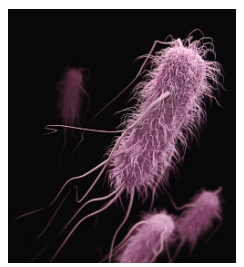What You Need to Know About E. coli

Escherichia coli, commonly known as E. coli, is a type of pathogenic bacteria found in the intestines of animals and humans. Although most strains of E. coli are harmless and contribute to good gut health, others can cause mild to severe food poisoning and can even be life-threatening.
According to the U.S. Food and Drug Administration (FDA), each year E. coli is responsible for approximately 48 illnesses, 128,000 hospitalizations, and 3,000 deaths in the U.S. Outbreaks of E. coli in food products such as raw or undercooked meats, unpasteurized dairy products and fruits and vegetables can endanger public health and often result in food recalls. To avoid the risk of contamination, this article provides information on the signs and symptoms to look out for and practical steps to take to ensure your safety.
- Coli Transmission
- coli is primarily contracted by consuming contaminated food or water. It can be transmitted from person to person as well as between humans and animals. The main avenues of E. coli transmission are as follows:
- Foodborne: Common food sources include raw or undercooked ground meat, poultry, unpasteurized dairy products, and raw vegetables and fruits.
- Waterborne: Drinking water that has been contaminated with fecal matter, such as sewage water or water that has not been properly treated can cause an E. coli infection.
- Person to person: Poor hygiene can result in E. coli transmission through the fecal-oral route between people.
- Animal to person: E. coli can be present in the feces of animals and spread to humans if proper hygiene habits are not followed.
Symptoms
Symptoms of an E. coli infection can appear anywhere between one to ten days after exposure to the bacteria. Although these symptoms may vary from person to person, they commonly include the following:
- Diarrhea, which in severe cases can be bloody
- Stomach cramps
- Fever
- Nausea
- Vomiting
While anyone can get an E. coli infection certain groups of people including babies and young children, pregnant women, older adults and people with weaker immune systems are more at risk of being infected.
In some cases, an E. coli infection can lead to severe illness and health problems which can leave an individual needing costly medical care and significantly impact their physical and emotional wellbeing as well as their earning capacity. If you have suffered losses following an E. coli infection, you may be eligible for compensation from the party at fault. For further information, contact an E. Coli Lawyer who can advise you of your legal rights and options.
Prevention Tips
The following best practices can help to prevent the risk of an E. coli infection:
- Make sure to cook meat to safe temperatures, especially ground beef. As summer approaches, pay particular attention to safely grilling hamburger meats and sausages.
- Wash your hands after using the bathroom, handling raw food, or changing diapers. Hands should also be washed after touching pets or animals, for example at petting zoos or farms.
- Thoroughly wash all countertops, cooking utensils and cutting boards to avoid any cross-contamination.
By following the guidance outlined above, you can greatly reduce the risk of contracting E. coli and passing it on to others.

